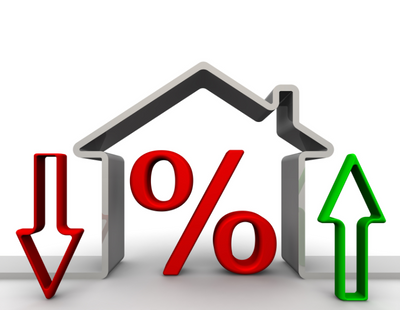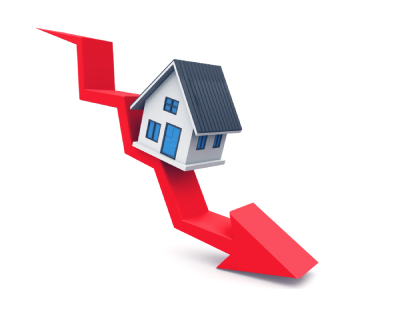
The total value of all homes across the UK hit record levels by the end of last year and it is owner-occupiers rather than landlords who are now benefiting, research suggests.
Analysis by Savills found the value of the UK’s housing stock hit £8.68 trillion at the end of 2022, recording a 5.1% year-on-year increase.
With outstanding mortgage debt standing at £1.66 trillion, according to the latest Bank of England records, that meant net housing wealth exceeded £7 trillion for the first time last year, equivalent to almost 81% of the total value of UK housing, according to Savills.
Of this, almost half – a record £3.34 trillion – was held by mortgage-free homeowners, the agent said.
Owner-occupiers have been the major beneficiaries of this value growth.
Almost 40% of the growth over the past three years was enjoyed by those who have paid off their mortgage debt, while mortgaged owner-occupiers accounted for +4% of the increase, according to the research.
It puts those owning their own homes ahead of landlords, Savills said.
In the period from 2012 to 2017 the value of private rented stock grew by £495bn, according to Savills estimates, somewhat more than the £443bn growth in the value of homes owned by mortgaged homeowners.
But over the five years to the end of 2022, the value of private rented stock rose by a much lower £222bn, while mortgaged owner-occupier homes added a total £669 billion to their value, the research found.
Lucian Cook, Savills head of residential research, said: “Not only have we continued to see people who benefitted from the homeownership boom of the latter part of the 20th century joining the ranks of the mortgage-free, but there’s also been a modest recovery in numbers of mortgaged homeowners, due to increased levels of first-time buyer activity over the period.
“At the same time, however, we’ve seen pressure on privately rented housing stock levels, due to increased regulation and taxation despite rising tenant demand. As a result, growth in the total value of mortgaged owner occupied homes exceeded that seen across the private rented sector, reversing a trend seen over the previous five years.
“Combined with the prospect of lower levels of house building, we expect that 2022 will represent a high watermark for the value of the nation’s housing stock for a few years.
“At the same time, activity among younger buyers that has improved in recent years is likely to come under more pressure, which will present a particular challenge for policymakers.”
|
|
Total Value
|
Annual Change
|
|
Mortgage Debt*
|
Housing Equity*
|
Value of UK housing
|
Mortgage Debt*
|
Housing Equity*
|
Value of UK housing
|
|
2012
|
£1,267bn
|
£3,681bn
|
£4,948bn
|
+ £22bn
|
+ £163bn
|
+ £185bn
|
|
2013
|
£1,278bn
|
£3,938bn
|
£5,217bn
|
+ £12bn
|
+ £257bn
|
+ £269bn
|
|
2014
|
£1,297bn
|
£4,358bn
|
£5,654bn
|
+ £18bn
|
+ £419bn
|
+ £438bn
|
|
2015
|
£1,328bn
|
£4,754bn
|
£6,082bn
|
+ £31bn
|
+ £397bn
|
+ £428bn
|
|
2016
|
£1,364bn
|
£5,107bn
|
£6,471bn
|
+ £36bn
|
+ £352bn
|
+ £389bn
|
|
2017
|
£1,374bn
|
£5,429bn
|
£6,803bn
|
+£10bn
|
+ £322bn
|
+ £333bn
|
|
2018
|
£1,448bn
|
£5,466bn
|
£6,914bn
|
+£73bn
|
+ £37bn
|
+ £111bn
|
|
2019
|
£1,491bn
|
£5,563bn
|
£7,054bn
|
+£44bn
|
+ £97bn
|
+ £140bn
|
|
2020
|
£1,535bn
|
£6,020bn
|
£7,555bn
|
+£43bn
|
+ £457bn
|
+ £500bn
|
|
2021
|
£1,597bn
|
£6,658bn
|
£8,254bn
|
+£62bn
|
+ £638bn
|
+ £700bn
|
|
2022
|
£1,660bn
|
£7,020bn
|
£8,679bn
|
+£63bn
|
+ £362bn
|
+ £425bn
|
















.png)


.png)



Join the conversation
Jump to latest comment and add your reply
An increase in mortgage freedom may serve to act as a drag on the market at present! People may be reluctant to take on new debt in order to trade up, given the level of uncertainty in the economy and the psychological comfort of 100% ownership.
Please login to comment